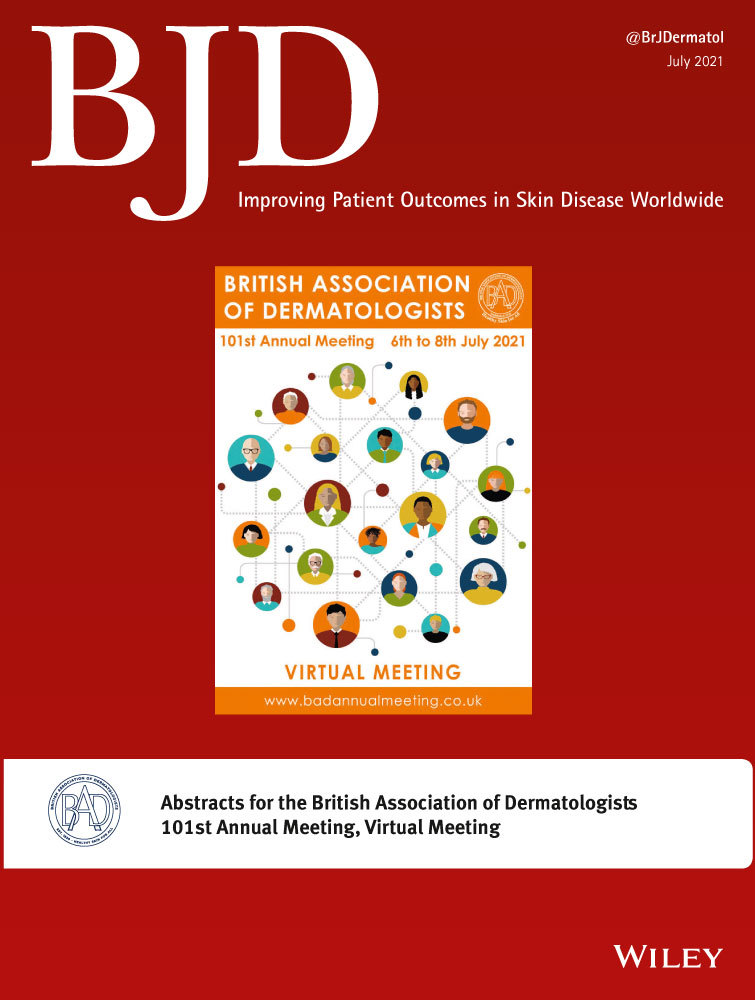BI24: Reimbursement systems as a barrier to sunscreen use for organ transplant recipients in Ireland: a community pharmacist survey
G. O’Connell,1 C. O’Connor,1,2 J. Bourke1,2 and M. Murphy1,2
1South Infirmary Victoria University Hospital and 2University College Cork, Cork, Ireland
In Ireland, sunscreen for solid organ transplant recipients (OTRs) may be reimbursed through a system called the Discretionary Hardship Fund (DHF). It must be prescribed by a consultant dermatologist or transplant specialist, along with an additional application form that must be signed by the prescribing doctor and dispensing pharmacist before submission. The application form and prescription must be resubmitted every 6 months. Acceptance for reimbursement is discretionary, with no clear published guidelines on criteria for acceptance. Community pharmacists play a critical role in this process, dispensing the sunscreen and filling and submitting the application. The aim of this study was to assess the knowledge, attitudes and behaviours of community pharmacists in Ireland in relation to sunscreen reimbursement for OTRs in Ireland. Our online survey was targeted at community pharmacists and distributed via email to 320 pharmacies in our hospital’s catchment area. Responses were obtained over 2 weeks. Qualitative data were analysed for themes in the categories of knowledge, attitudes and behaviours. Sixty-five responses were received (response rate 20%). There was good awareness of the DHF as a whole (92%, n = 60); however, only 49% (n = 32) were aware that sunscreen may be reimbursed under the scheme. Of the 19 pharmacists who had submitted a reimbursement request in the past 89% (n = 17) reported that they had been successfully reimbursed. Additional comments were offered by 42 pharmacists. The emergent themes included the cumbersome nature of the scheme (n = 32), the delays in receiving reimbursement (n = 18), calls to discontinue the DHF (n = 16) and suggestions to fund through the Primary Care Reimbursement Scheme (PCRS; n = 14), in line with the majority of reimbursable treatments in Ireland. The poor level of information available regarding the scheme was highlighted (n = 10). Eleven pharmacists stated that facilitating the scheme was not economically viable for them. The findings of this study demonstrate poor awareness of sunscreen reimbursement for OTRs among community pharmacists, with only half (49%) aware that it may be reimbursed through the DHF. It also demonstrates low levels of uptake on the scheme, with only 29% having applied to the scheme on behalf of a patient in the past. The survey captures the frustrations felt by pharmacists, with issues involving delays in application progress, the complexity of the scheme and remuneration being prevalent themes. Funding through the PCRS was highlighted as a possible alternative. A significant limitation of the study was the small sample size (65 responses), with a 20% response rate. Sunscreen reimbursement has been shown to increase sunscreen use in the Irish OTR population and reduce the development of skin cancer. The DHF as a means of reimbursement negatively impacts access to sunscreen for this at-risk group.




